“War is Hell”, indeed. That’s a recurring theme in Kingdom, and sort of a paradox in the sense that it’s a series that indisputably glorifies war and warriors. Does it try to have it both ways – trade on the rousing adventure and heroism while still acknowledging that war is, you know – bad? Of that there can be no doubt. But I do give it props for not just acknowledging the massacre at Changping, but giving it considerably more than lip service.
As I noted last week, the Changping Massacre is one of the greatest atrocities ever committed in warfare and has indeed stamped its perpetrator, Bai Qi, as one of the evilest commanders in military history. It’s deep enough in the mists of the past (260 B.C.) that no one can be sure of the true numbers, and it’s likely that the legendary 400,000 is a significant exaggeration. But Bai Qi surely buried a huge number of surrendered prisoners alive – bones continue to be discovered even now at the site – and it’s no stretch to believe that Zhao would bear a grudge against Qin that burned across the years with a volcanic ferocity.
That’s awkward, because Qin are nominally the good guys in Kingdom. All of the characters who might reasonably be considered protagonists are natives or loyal to that side. As the Battle of Hongu Pass plays out it’s 19 years after the massacre, barely a blink of an eye. Many of the commanders from that campaign are still in the Qin army, though – crucially – Xin wasn’t even born yet. Wan Ji is that rarity, a survivor from Zhao – a mere child at the time (played by an actual child. Kazuya Sato – a rarity in a low-budget anime like this one), and now the commander of the ultimate grudge unit. And Xin’s opponent.
If Diao hadn’t ridden into battle it seems as if the Fei Xin force might have been routed. But ride in she did, and she does what she does best if usually a lot more remotely – move the pieces around on the chessboard. Bringing order to the chaos she stabilizes the situation, but the Fei Xin still have to deal with an enemy so desperate for revenge that they literally won’t stop killing until they’re dead. Needless to say, Wan Ji and his living ghosts are a tough nut to crack.
Xin fares very well in his showdown with Wan Ji, and I don’t just mean that he kills the enemy and lives to fight another day. His compassion for Wan Ji’s suffering is entirely appropriate, and while his pledge not to commit another Changping may ring a little hollow, it’s worth remembering that in this one instance, Qin is merely defending itself from invasion. If there’s any hope that this world isn’t as bleak as Wan Ji describes it, it lies in the likes of Xin – young enough not to be tainted with the atrocities of past wars, and – thanks to his belief in Zheng – genuinely optimistic that something better might one day be created.
Kingdom is not a world made for idealists, that much is clear. And Xin’s belief in both Zheng’s ability and his motives is probably a little naive to say the least. But as the hero he has to aspire to rise above all this chaos and brutality – to at least offer the possibility that all the fighting isn’t completely a waste of time. Shouldering the burden Wan Ji places on him is a symbolic gesture of course, but it’s what we should want a hero to do – to show that he understands the truth of the situation, and accepts the unfairness of it.


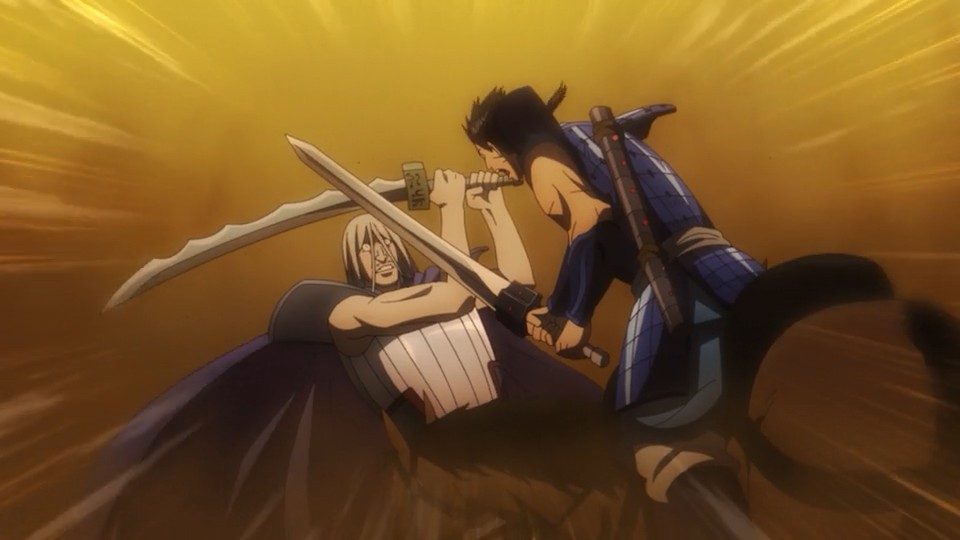
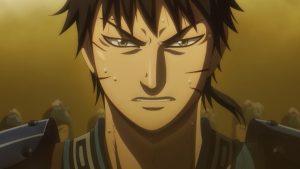
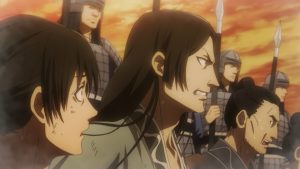
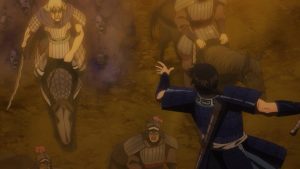
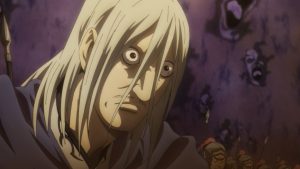
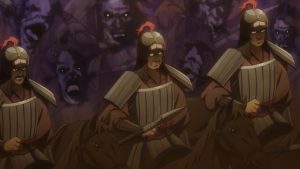
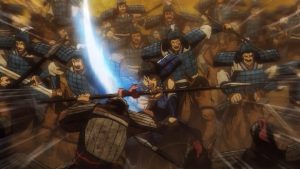
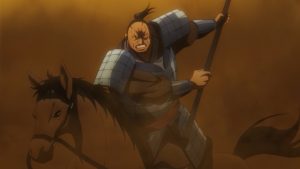
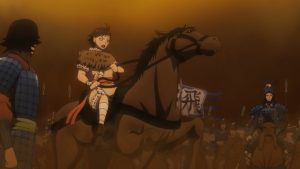
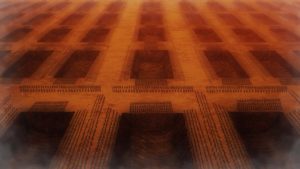
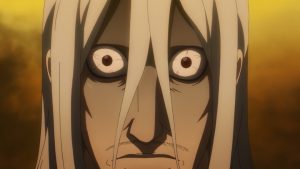
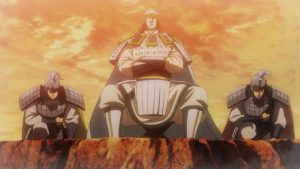
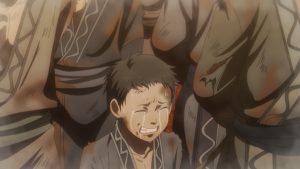

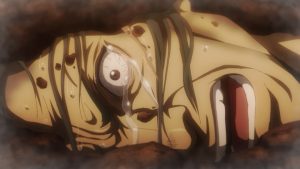
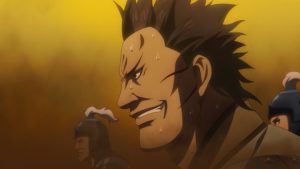
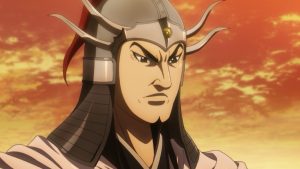

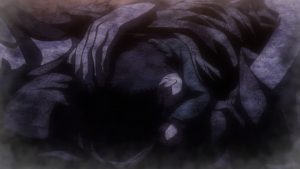
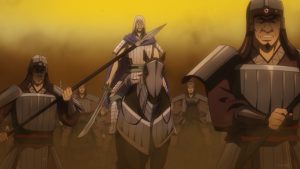

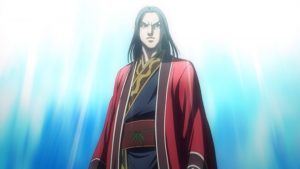
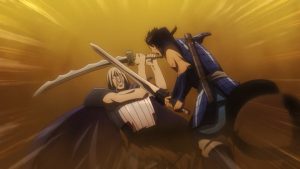
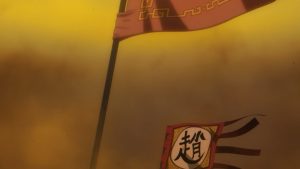
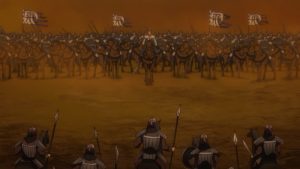
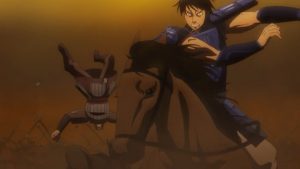
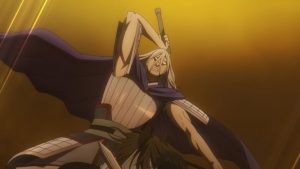
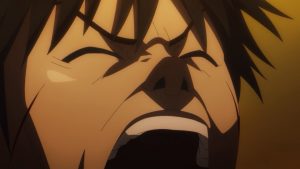
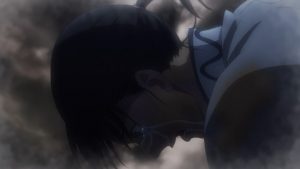

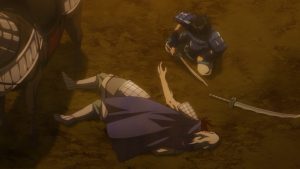
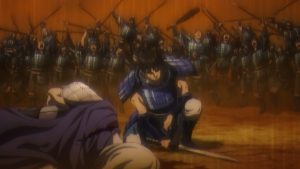
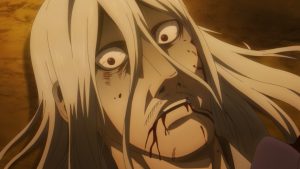
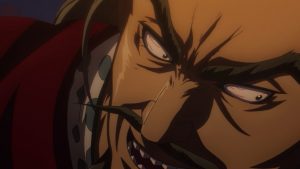
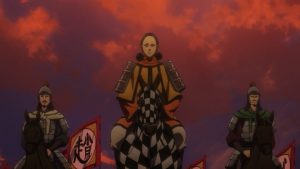




Derrick
May 18, 2021 at 4:43 pmReddit threads about Kingdom are littered with that question.
“is Qin the bad guy?”
Of course, even Europeans won’t feel too bad about their colonialism at that time.
Maybe humanity is just unable to feel what others feel, especially if it numbers above 100.
Guardian Enzo
May 19, 2021 at 7:31 pmThat’s basically why I don’t consider Kingdom’s glorification of war a deal-breaker. It doesn’t gloss over the dark side and it doesn’t twist history to make one side like good and the others evil in a conflict where everyone had plenty to be ashamed of.